Main Menu
This presentation highlights the outcomes of the Natur’ELLES project, which reached 123 villages across Senegal and directly benefited 8,000 individuals, including 6,000 women. The project strengthened women’s participation in mangrove governance through capacity-building activities, including a women’s leadership program.
It also incorporated a gender-sensitive cost-benefit analysis by collecting disaggregated data on women’s and men’s perceptions of landscape changes. The findings reveal that women place greater value on social ties, local identity, and spirituality connected to mangroves, while the drivers of degradation differ by gender (e.g., land abandonment, illegal fishing).
The project underscores the importance of integrating these gender differences into the design of nature-based solutions (NbS). Lastly, it emphasizes equitable access to education and digital services as key to enhancing women’s empowerment.
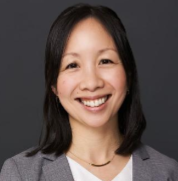
Veronica Lo is a Senior Policy Advisor in the Resilience program at IISD, focusing on climate adaptation and the promotion of nature-based climate solutions, particularly through capacity-building initiatives. With over ten years of experience in biodiversity conservation and international climate policy, she has previously worked with Nature Conservancy Canada and the Convention on Biological Diversity. Veronica holds a joint PhD in Marine Ecosystem Health and Conservation from the Universities of Bologna and Ghent, as well as a Master’s degree in Resource Management and Environmental Studies from the University of British Columbia.
While mangroves have long been recognized for their critical role in carbon storage and combating climate change, they are also ecosystems with rich social, economic, and cultural dimensions. Beyond their environmental function, mangroves provide essential ecosystem services that support the livelihoods of local communities—especially women, who are often at the forefront of their use and preservation.
In many coastal areas, mangroves serve as vital spaces for artisanal fishing, shellfish gathering, subsistence farming, traditional medicine, and local crafts. These activities generate income and enhance women’s economic autonomy, while contributing to food security and the resilience of the territories.
This panel aims to explore the social, economic, and cultural impacts of mangroves, which are frequently overlooked or underestimated in approaches focused solely on carbon. It seeks to highlight women’s roles and knowledge, innovative community initiatives, and the empowerment opportunities that these ecosystems offer when managed inclusively and sustainably.
By bringing together field practitioners, experts, policymakers, and local community members, this panel will foster a rich dialogue on policies, practices, and perspectives related to mangrove conservation in support of human development and social equity.
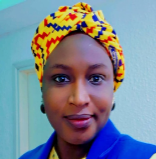
Mame Bineta Fall is an expert in gender equality, women’s leadership, and social justice. She dedicates her expertise to the sustainable transformation of norms, frameworks, and practices to ensure women’s voices are heard in development policies. For over 15 years, she has supported the emergence of leaders capable of embedding gender equality at the heart of ecological, economic, and social transitions.
Her work is rooted in a deep commitment to solidarity and social inclusion. As a leading figure in the fight against gender-based violence, she focuses on redefining paradigms of power and governance to advance social justice.
Firmly believing that women are not merely beneficiaries of development but its true architects, she strives to reposition their knowledge, voices, and aspirations at the core of systemic transformations. Panelists’ Biographies

Veronica Lo is a Senior Policy Advisor in the Resilience program at IISD, focusing on climate adaptation and the promotion of nature-based climate solutions, particularly through capacity-building initiatives. With over ten years of experience in biodiversity conservation and international climate policy, she has previously worked with Nature Conservancy Canada and the Convention on Biological Diversity. Veronica holds a joint PhD in Marine Ecosystem Health and Conservation from the Universities of Bologna and Ghent, as well as a Master’s degree in Resource Management and Environmental Studies from the University of British Columbia.
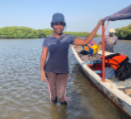
Holder of a professional bachelor’s degree in business administration with a specialization in Marketing and Business Intelligence, Fatou Ndène is a dynamic young woman deeply committed to community development. An active member of GIE Matyr in Palmarin, she has stood out as a local leader and liaison for the Local Artisanal Fisheries Council (CLPA) since 2022.
She specializes in the processing of fishery and cereal products and also works as a collector at the Palmarin fishing dock, helping to enhance the value of local resources. In parallel, she develops her entrepreneurial activities in clothing and cosmetics sales, demonstrating sharp business acumen.
Through all her initiatives, Fatou embodies a generation of ambitious young women focused on economic empowerment and the well-being of their communities.
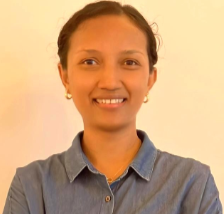
For several years, Harilala Rakotonaivo has been actively engaged in combating gender-based violence, strengthening community capacities, and advocating for equal rights. Her work is deeply rooted in values of social justice, solidarity, and inclusion.
Based in Antananarivo, the organization CforC (Center for Community Empowerment) works to empower vulnerable communities through participatory and sustainable approaches. At the heart of its mission are the principles of equality, human rights, and inclusive community development.
As part of the ReSea (Regenerative Seascape) project, CforC plays a key role in mainstreaming gender considerations into the implementation of nature-based solutions, the conservation of locally managed marine protected areas, and the economic empowerment of women through their participation in nature-based value chains.
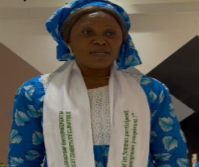
Seynabou Gomis will present initiatives led by rural women to protect mangroves while developing alternative income-generating activities. Her presentation will highlight local knowledge, the often-invisible roles played by women, and the pathways to empowerment made possible through inclusive and sustainable ecosystem management.
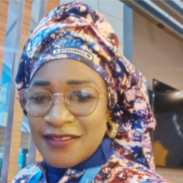
Born in 1971 in Dakar, Diaba Diop is a prominent figure in Senegal’s artisanal fishing sector. Inspired by her grandmother, a fish processor, she began working in the industry in 1999 in Thiaroye. She strengthened her skills through training with ADEPA and other capacity-building programs, becoming a dynamic advocate for local development.
Born in 1971 in Dakar, Diaba Diop is a prominent figure in Senegal’s artisanal fishing sector. Inspired by her grandmother, a fish processor, she began working in the industry in 1999 in Thiaroye. She strengthened her skills through training with ADEPA and other capacity-building programs, becoming a dynamic advocate for local development.
With 24 years of experience, Diop is a passionate advocate for women’s empowerment, sustainable resource management, and the protection of small pelagic species, speaking out strongly against the fishmeal industry. Known for her boldness and courage, she balances her deep professional commitment with strong family values.